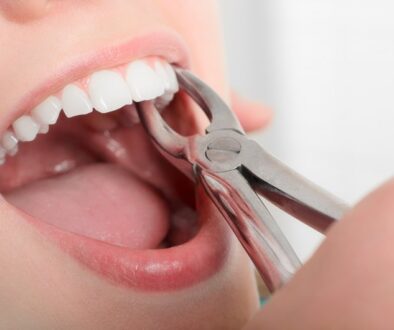3 WARNING SIGNS OF IMPACTED WISDOM TEETH
Are you experiencing persistent mouth pain but don’t know why? If you are a teenager or young adult, that mystery pain may be caused by impacted wisdom teeth. Oral surgery in Denver to remove troublesome wisdom teeth can help deliver pain relief and prevent future oral health problems. However, how can you tell if your third molars are impacted? Here are 3 warning signs of impacted wisdom teeth – and why you should not delay wisdom teeth removal.
What Are Impacted Wisdom Teeth?
Wisdom teeth, also known as third molars, typically erupt between the ages of 15 and 25. Because they are the last teeth to grow in, many people do not have enough space in their mouth for them. Impacted wisdom teeth are third molars that do not have sufficient space to grow in properly or that grow in sideways.
How Can I Tell If My Wisdom Teeth Are Impacted?
Your wisdom teeth may be impacted if you are experiencing any of the following symptoms:
#1: Pain in the Back of the Jaw
If you have impacted wisdom teeth, you may feel pain radiating from the back of the jaw. Wisdom tooth pain in Denver may get worse as the teeth grow in further and push up against nearby molars. Pain caused by impacted wisdom teeth can also spread to other parts of the body and contribute to headaches, earaches, neck and shoulder pain, and tender glands.
#2: Swollen, Tender and Bleeding Gums
Impacted wisdom teeth can also cause gums to become swollen and tender to the touch. They may even bleed when brushing and flossing. Swelling gums may be subtle at first, but can worsen quickly. Eventually, it may become painful or difficult to open your mouth to talk or eat meals.
#3: Persistent Bad Breath
Finally, if you notice that your breath stinks even after brushing, you may have impacted wisdom teeth. Because they are at the very back of the mouth and growing in at odd angles, impacted wisdom teeth can be very difficult to clean properly. As a result, tiny bits of food debris and bacteria can accumulate around third molars and cause bad breath.
What Happens If You Don’t Remove Impacted Wisdom Teeth?
While impacted wisdom teeth can cause the painful symptoms listed above, the real reason to remove them is to prevent serious oral health problems. Over time, impacted wisdom teeth can contribute to:
- Bite problems – Impacted wisdom teeth can push nearby molars out of position and cause serious bite problems.
- Gum disease and tooth decay – Because they are difficult to clean, impacted wisdom teeth can increase the risk of gum disease and tooth decay.
- Cysts – Pockets of fluid, or cysts, can sometimes form around impacted wisdom teeth. Dental cysts can damage nerves, cause pain, and even lead to tumors.
Don’t try to push through the pain of impacted wisdom teeth! Find relief and prevent future oral health problems by talking to your dentist about oral surgery in Denver.




